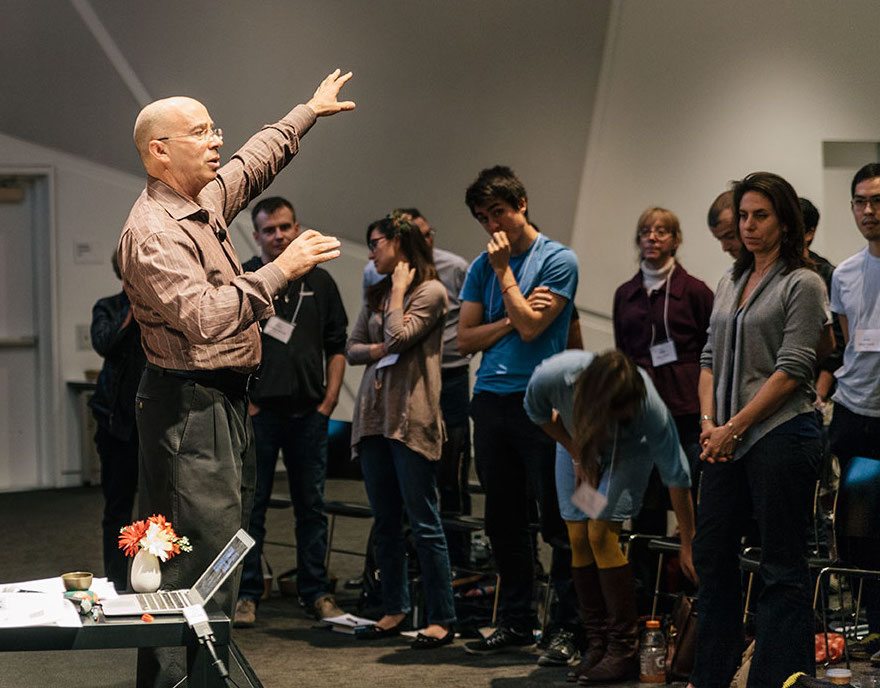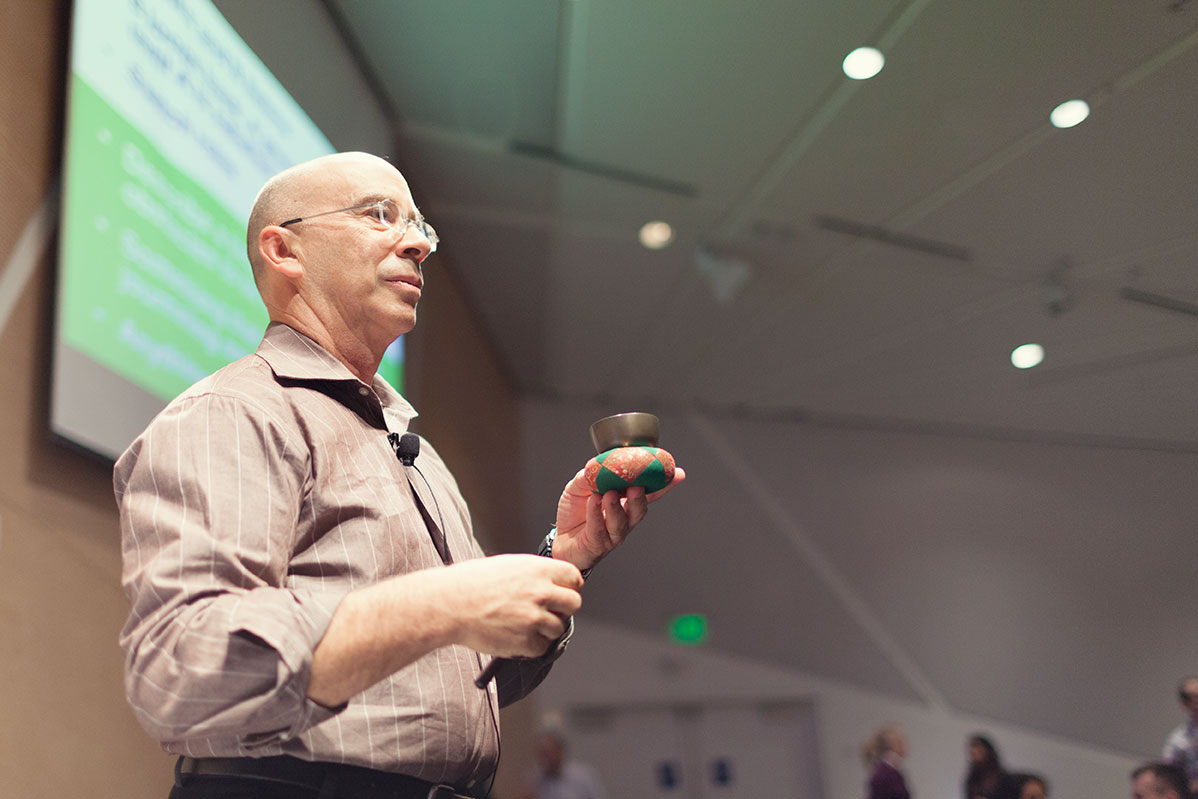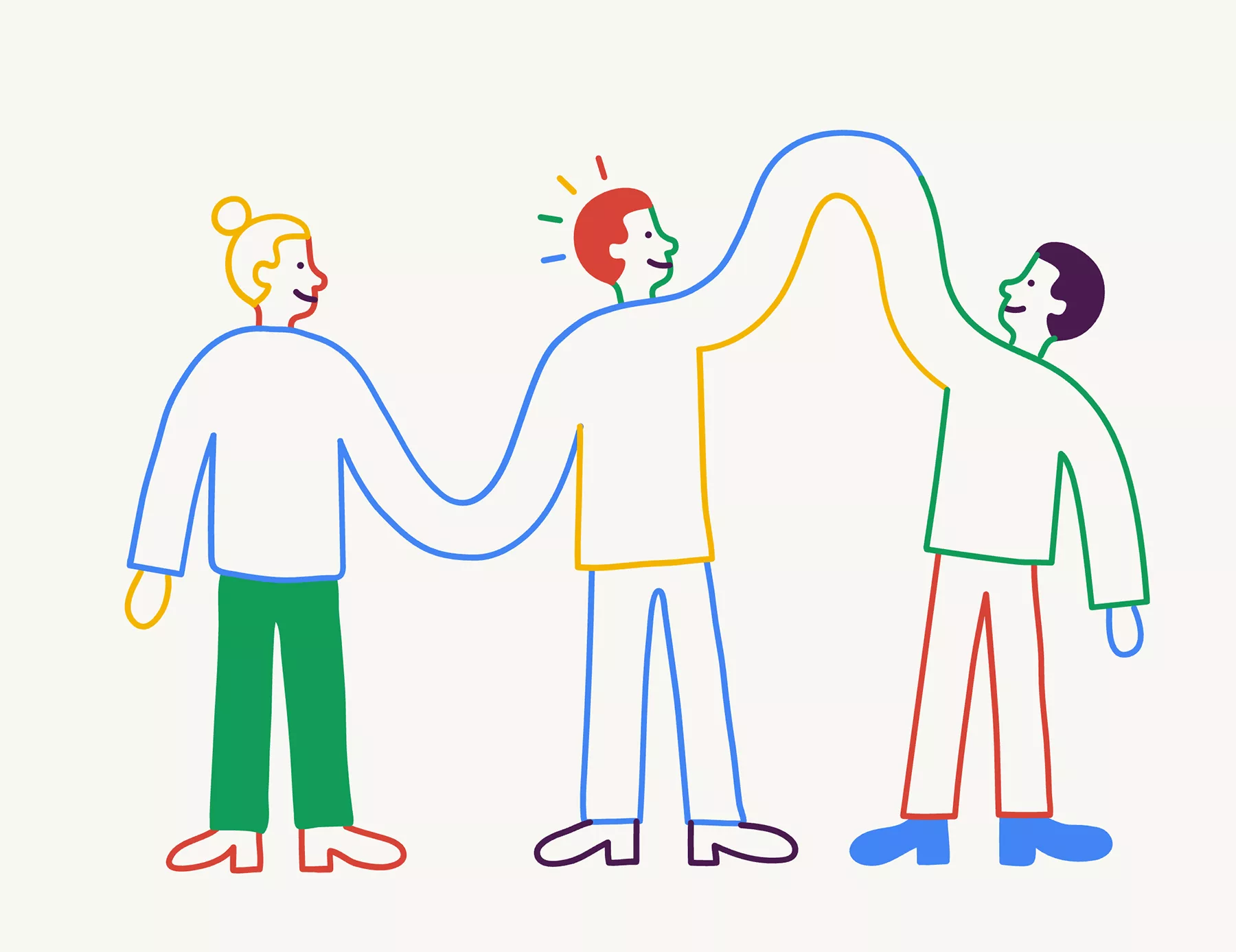Listen to the CCM Webinar “What is Conscious Leadership?” recorded Wednesday April 26, 2017 to hear more from Marc Lesser and other experts on the topic!
In 2012, author and teacher Marc Lesser co-founded the Search Inside Yourself Leadership Institute with Google engineer Chade-Meng Tan. The two-day, science-based trainings were a hit: as word about the program started to get out, registration for upcoming sessions would fill up within minutes. After an initial incubation period within Google, SIYLI (pronounced “silly”) split off to become its own nonprofit, which now works with dozens of companies and government entities around the world every year, taking thousands of people through two-day trainings that many have described as “life-changing.”
Lesser describes the program’s recipe for success as “a blend of structure and rigor with openness and warm-heartedness.” In a room full of employees who might not typically interact, the SIYLI trainings present the evidence-based basics of compassionate leadership, giving employees tools and practices around how to have difficult conversations, understand what’s important to them, and let go of worrying about success or failure. While Google’s raw data on the programs’ effectiveness is proprietary, according to Lesser, “when people take the class, followed by 10 weeks of daily for 20 minutes, significant changes happen, like reduction of stress levels and reported increases in being able to solve difficult problems.”
Lesser spoke with his friend and contributing writer Jay Harris about what SIYLI does, how it got started, and why mindfulness is so important in business.

Marc Lesser leads a group at a Search Inside Yourself Leadership Institute workshop.
Jay Harris: How did the SIYLI program move outside of Google?
Marc Lesser : We created SIYLI in 2012, and immediately there was interest from other companies. Plantronics was our first customer outside of Google, and I remember wondering, “Geez, is this gonna fly?” Plantronics was a much more conventional company, where the average age was 40 or 50, and many people had been there 10, 20, or more years. But there was a feeling of aliveness and openness during the program that real communication was happening for the first time. It was as though people had rarely connected with each other on a deep level until they had a structure and a safe space.
The CEO was in the course, and the head of HR. One of the moments that stands out for me was toward the end of the two days, when someone stood up and said “Well, this is great. This is life-changing. But there are only 50 of us here, and there are thousands of people in the company. How’s this going to change the company if it’s just us?” And the CEO stood up and said, “Don’t worry. I want everyone in the company to take this program.” So I thought, “Okay. That’s pretty good.”
So tell me how bankers have responded? That would be very different, I imagine, from a group of engineers.
ML: You know, I think this is really about people. We’re doing it in the workplace, but it touches people at more the human level. We almost joke sometimes that you have to sell it to your boss as a leadership program — and it will improve communication, and you’ll be more productive. Meditation builds your focus, your awareness. It will make you less ego-driven and more flexible, more open to seeing things from different points of view. So people understand that this makes sense for their businesses, but I think people really get that this makes sense in their lives. ’Cause nearly everyone is struggling — with their marriage, their children, their parents, life!
One of the slides we use shows a person standing at the edge of a pier just facing out. This is the “Being a human being is a tough gig” slide — just being a human being is a tough, fucking gig. Here you are at work — you’re supposed to be successful, you’re supposed to play nice, and then you’ve got to go home and take care of your family, and deal with money, and politics, and you know you’re going to die. And you’re taking care of your aging parents, and your kids are struggling with drugs, and it’s like, “What are the tools?” And no one has ever had the conversation with you that just acknowledges that it’s hard.
Why is there so much alcoholism? Because being a human being without resorting to drugs and violence and eating Twinkies is hard. What can you do? What tools might make it a little bit less painful? How can we learn to appreciate even the difficult and challenging parts of life?
Both days in our program we talk about a mindful lunch and mindful eating. Imagine looking at your food. Imagine tasting your food. Imagine, just for a moment, wondering where this food came from. Who grew this food? Imagine being grateful to whoever that was. No one has introduced these practices for most of us. People go to church and talk about these things, but for a lot of people it doesn’t feel practical in a way that we’re making it practical.
This may be just the way of the modern world, but many daily interactions with other people can feel almost pre-programmed. How does mindfulness training help people connect more deeply?
ML: Well, that reminds me of the book I’m reading, “The Undoing Project,” about the work of Daniel Kahneman and Amos Tversky. Their focus is on our two systems of decision-making. System One is, in a way, our intuition — we’re wired to make snap judgments about almost everything.
Essentially what they say is that people are storytelling machines — our brains create stories to make sense of the world. And that has a very positive side, but it also means that we tell ourselves stories about who other people are, and very often, the stories are incomplete or biased. We see this in interviewing processes, where people make snap judgments. I mean, Google did a whole study years ago showing that their interviewing process, which they had thought was great, was, when they really did the data collection, no better than throwing darts.
For most of us, as soon as we stop and give it a little thought, we see the world is not what it first seems. So where you put your attention matters. For instance, there’s a lot of science showing that we all have a negativity bias, that we’re hard-wired to see threats — the inner critic that almost every human experiences, combined with how deeply we react to threats and how shallowly we react to good things. This is part of the human condition. In a way it’s a vestige of our caveman days, when we needed to react very, very potently to stay alive. But now we do that with emails and in meetings, and there’s this constant sense of being on alert.
So it helps just to know that, and then we also introduce some practices to counteract that. So that you can actually pay attention to moments where you feel happy, and stay with them a little bit, and appreciate them. Or even just look for a little thin slice that says, “Right now we’re okay. There’s no threat right now. We don’t have to be worried at this moment.” We give people those kinds of practices.

SIYLI’s Marc Lesser leading a mindfulness training.
We spoke before about the enormous divide within American politics, which was big already before 2016’s elections and has now gotten far bigger and more bitter. Do you see the potential of this kind of training to address the divisions in our civic culture?
ML: Yeah. In an ideal world, I’d love to get people of different sides in the room to do a program like this. When you get people together in the room, and you can see the humanness in each other, you can then talk about pretty much everything. We might not agree, but just to be able to have the conversation helps.
It all starts with opening the hearts of individuals. What a kind of radical, crazy idea that we are all interconnected. It’s the opposite of biased and narrow thinking — that instead of this fear of letting terrorists in, it’s like, “No, the only way to solve these problems is to connect heart-to-heart with people.” Fundamentally everyone wants to be happy. And we all want to take care of our families. All of us.
And it’s not like we’re less tenderhearted when we come to work. Most of us have been trained to put that aside or to think that our own humanness is not good for business. But that’s shifting. It’s starting in places like Google and SAP because they get that it’s people working together who will be more creative, productive, innovative. There’s been a big shift from an assembly-line mentality to a collaborative mentality in what it takes to make businesses most effective.
Opening up the hearts and minds of individuals can shift how people work together. And as you spread that, it can influence a company’s culture, and it can redirect the way companies do business. What responsibility do companies have as players on the national or international stage to be a force for connectivity, for people for doing good and avoiding harm? For tearing down walls, not building up walls, as the only way to reduce bias, and violence, and inequality? There’s a powerful through-line between developing the individual, the team, the company, and healing the world.
What’s giving you hope?
ML: What gives me hope is the power that people have to transform and change on an individual level, and how that can spread. We need hope as individuals in the human species. And I think the most profound hope comes from tearing down the illusion of separateness, reducing the fear of other and seeing that we have to depend on each other. We have to. It’s the only way we’re going to survive as a species.



